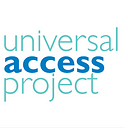Meet Sekulu, an Artist and Advocate for Reproductive Rights

By Seema Jalan
An estimated 20 million adolescent women want to prevent pregnancy but are not using a modern form of contraception. Around the world, young people are advocating in their communities for comprehensive sexual and reproductive health and rights for all.
Meet Sekulu, 20, Indian:
Sekulu comes from a small state in Northeast India called Nagaland. She is one of five children, and though her family has had its share of hardships, she says she never felt like she wanted her family to be smaller.
“I love every bit of this big family,” said Sekulu. “So for a girl who loves having many siblings, where does family planning come into the picture?”
The answer, for Sekulu, was in her role models: “I grew up with three strong women, my two elder sisters and my mother. They have always reminded me that there is nothing a woman cannot do.”
But, when a friend of hers became unexpectedly pregnant at age 16, and another experienced a “scary” abortion where she was humiliated by her nurse, Sekulu learned that “as much strength as we have as women, it is as easy to lose it.”
“Growing up in a Christian majority state, there is no conversation around sex and contraception,” said Sekulu. After seeing her friends’ experiences, she took matters into her own hands and began to learn about her own sexual and reproductive health and rights through an internship with Hidden Pockets Collective, a referral platform run by young people that helps their peers find quality sexual and reproductive health services in their communities. She soon became an advocate for sexual and reproductive health and rights, including family planning, in her community, designing campaigns and artwork, mapping health clinics, and even counseling her friends about contraceptive options.
Through her work, Sekulu realized great disparities in her country: “Family planning education may have sadly become a privilege of the learned, urban population while the marginalized and rural population are ignored.” Now, Sekulu focuses on inclusive activism: finding ways to make sure that all the advocacy content she and her peers create can reach marginalized communities, including those in rural areas, or those who are not literate, all the while battling social and community norms that make conversations about reproductive health and rights challenging.
But when she sees her work have impact, it makes every challenge worthwhile. The most rewarding part of her advocacy, says Sekulu, is “when even one person finds a tiny bit of our work helpful and meaningful. Using our creative strength to bring better change is contentment in itself.”
One thing Sekulu has learned from her advocacy is the power of her voice: “Amidst the intensity of issues and problems, it is only words and my right to speech that enables me to take a step and fight injustice. It is our voice that paves the way to our actions of changing wrong to right.” Through her poetry, articles, and artwork, Sekulu exercises her voice to make a difference in her community.
“It is never enough, but I really wish to even move a tiny pebble. … What I always tell myself is, always give your best with genuineness,” said Sekulu. “Even when you feel your efforts are not good enough, continue to care.”
Access to quality sexual and reproductive health information and services is a fundamental human right and a key intervention to enable young people everywhere to pursue an education, launch a career, and control their futures. Learn more about the Universal Access Project and get involved at www.universalaccessproject.org.
